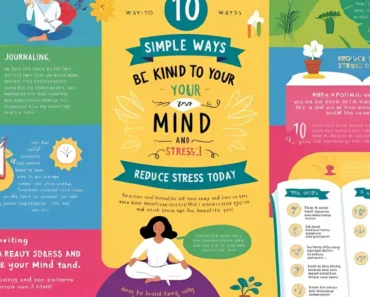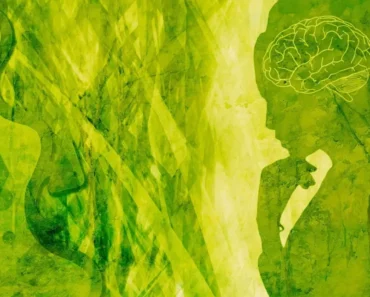Therapy Apps vs. Traditional Counseling: Pros & Cons. This guide explores the evolving landscape of mental health support, comparing digital solutions with in-person therapy to help you choose the best path for your well-being.
The Evolving Landscape of Mental Health Support
Seeking support for mental health challenges has become increasingly common and accepted. The options for accessing help have also expanded dramatically. Beyond traditional in-person counseling, digital platforms and applications now offer various forms of therapeutic assistance. This evolution presents both opportunities and dilemmas for individuals looking to improve their mental well-being. The question often arises: which path is more effective, or more suitable for my needs? This comparison between Therapy Apps vs. Traditional Counseling becomes essential.
For many years, traditional counseling stood as the primary method for addressing mental health concerns. This involved face-to-face sessions with a licensed therapist, building a direct, personal rapport. It provided a dedicated space for deep introspection and guided healing. This established model has proven effective for countless individuals.
However, the rise of technology has introduced new possibilities. Therapy Apps promise convenience, affordability, and accessibility. They offer support at your fingertips, anytime, anywhere. This digital shift has opened doors for those who previously faced barriers to traditional therapy. Understanding the distinct advantages and limitations of both approaches helps make an informed decision about your mental health journey.
Therapy Apps: Advantages in Accessibility and Modern Living
Therapy apps provide a new, often more convenient, way to access mental health support. Their strengths often lie in overcoming common barriers associated with traditional counseling. This segment focuses on the pros of Therapy Apps vs. Traditional Counseling.
Unparalleled Accessibility and Convenience
Therapy apps offer support 24/7, directly from your smartphone or computer. This removes the need for travel to an office, saves commuting time, and allows for sessions to fit around busy schedules. You can engage with the app at any time of day or night, from any location. This high level of convenience makes mental health support available to individuals who might otherwise struggle to access it. This factor highlights a significant advantage in Therapy Apps vs. Traditional Counseling.
Lower Cost and Broader Affordability
One of the most significant advantages of therapy apps is their affordability. Traditional counseling sessions can be expensive, often ranging from $100 to $250 per hour or more without insurance. Therapy apps, conversely, typically operate on a subscription model, costing anywhere from $20 to $80 per month. This lower financial barrier makes mental health support accessible to a wider demographic. This cost-effectiveness makes Therapy Apps vs. Traditional Counseling an appealing option for many.
Anonymity and Reduced Stigma
For some individuals, the stigma associated with seeking therapy remains a significant deterrent. Therapy apps offer a higher degree of anonymity. Users can explore sensitive issues privately, without the perceived judgment of a human therapist or the need to be seen entering a clinic. This private space can encourage more people to seek help. This anonymity helps individuals feel safer exploring personal challenges.
Structured Programs and Guided Self-Help
Many therapy apps utilize structured programs based on established therapeutic techniques like cognitive behavioral therapy (CBT) or dialectical behavior therapy (DBT). The app guides users through exercises, journaling prompts, and skill-building modules. This structured approach helps individuals identify problematic patterns and practice new coping behaviors. They provide a self-help framework that can be effective for straightforward issues like anxiety or stress management.
Therapy Apps: Limitations and Drawbacks
Despite their advantages, therapy apps have notable limitations. These drawbacks reveal why they may not suit everyone, or every mental health concern, when comparing Therapy Apps vs. Traditional Counseling.
Lack of Genuine Empathy and Nuance
Therapy apps, powered by algorithms, inherently lack genuine human empathy, intuition, and the ability to understand complex human nuances. They cannot read subtle facial expressions, interpret body language, or adapt to the unspoken emotional shifts in a conversation the way a human therapist can. Relationships thrive on emotional connection, vulnerability, and the intricate dance of human interaction. An app, no matter how advanced, cannot truly replicate the depth of human understanding required for complex emotional or relational issues.
Inability to Handle Complex Issues or Crises
Therapy apps are generally not equipped to diagnose complex mental health conditions. They cannot intervene effectively in crisis situations, such as severe depression, suicidal ideation, or domestic violence. They also struggle to address deeply rooted emotional issues, past traumas, or intricate family histories. Their programmed responses lack the flexibility and adaptive judgment needed for severe or multifaceted psychological challenges. For these reasons, they fall short compared to traditional counseling.
Data Privacy and Security Concerns
Using therapy apps involves sharing highly sensitive personal information. Data privacy and security become paramount concerns. Users must trust that their conversations and shared data remain confidential and secure from breaches or misuse. The ethical implications of AI analyzing intimate human interactions, and how that data might be used or stored, raise important questions for individuals and the broader mental health community. This trust factor can be a significant hurdle for some users.
Varying Quality and Lack of Direct Human Oversight
The quality of therapy apps varies widely. Some offer evidence-based techniques, while others provide less regulated or less effective content. Many apps primarily offer self-help exercises without direct interaction with a licensed professional. Even apps that connect users with therapists might use a different model than traditional counseling, such as text-based communication. The lack of consistent human oversight means users might not receive tailored support when needed.
Traditional Counseling: Advantages in Depth and Connection
Traditional counseling offers unique strengths rooted in human interaction. These advantages often make it the preferred choice for comprehensive and personalized mental health support. This section highlights the pros of Traditional Counseling vs. Therapy Apps.
Deep Human Connection and Empathy
The core strength of traditional counseling lies in the genuine human connection between client and therapist. A licensed professional brings empathy, intuition, and the ability to build rapport. They can read non-verbal cues, understand nuanced emotions, and adapt their approach in real-time. This dynamic human interaction fosters trust and allows for a deeper level of vulnerability and emotional processing. This personalized connection is irreplaceable.
Nuanced Understanding and Adaptive Support
Human therapists offer a nuanced understanding of complex psychological dynamics. They can identify underlying issues, connect past experiences to current behaviors, and adapt therapeutic strategies as the client’s needs evolve. They provide flexible, individualized support that responds directly to unique situations. This adaptive nature allows for a more comprehensive and tailored treatment plan, especially for multifaceted challenges.
Ability to Handle Complex Issues and Crises
Traditional counseling is equipped to address severe mental health conditions, complex trauma, and crisis situations. Licensed therapists can diagnose disorders, provide interventions during emotional crises, and offer ongoing support for chronic conditions. They can also involve family members in therapy when appropriate, providing a holistic approach. This capability is a significant advantage when considering Therapy Apps vs. Traditional Counseling for serious concerns.
Professional Regulation and Ethical Standards
Licensed therapists adhere to strict professional and ethical standards. They undergo extensive training, supervision, and continuing education. They maintain confidentiality and follow established best practices. This professional oversight provides a layer of protection and accountability for clients, ensuring they receive ethical and competent care.
Traditional Counseling: Limitations and Challenges
Despite its profound benefits, traditional counseling also presents certain challenges that can hinder access for some individuals. These are the cons of Therapy Apps vs. Traditional Counseling.
Higher Cost and Potential Financial Barriers
Traditional counseling sessions typically come with a higher cost per session. While health insurance can cover a portion, co-pays or lack of coverage can create significant financial barriers for many. This higher price point makes consistent, long-term therapy less accessible for individuals with limited budgets. This is a primary disadvantage when considering Therapy Apps vs. Traditional Counseling.
Accessibility and Scheduling Difficulties
Scheduling conflicts, limited availability of therapists in certain areas, and travel time to appointments can pose significant accessibility challenges. Finding a therapist who specializes in your specific needs and has openings that fit your schedule often requires patience. This can delay access to crucial support, particularly in rural areas.
Stigma and Privacy Concerns
For some, the stigma associated with being seen entering a therapist’s office or openly discussing mental health remains a concern. While decreasing, this societal stigma can prevent individuals from seeking help. Additionally, while confidentiality is paramount, some individuals might still have privacy concerns about their information being part of medical records.
Finding the Right Fit Takes Time
Establishing a strong therapeutic relationship requires finding a therapist with whom you feel comfortable and understood. This “fit” is crucial for effective therapy. It can sometimes take several attempts with different therapists to find the right match, which can be time-consuming and emotionally taxing.
Read Also: Texting Anxiety: How Screens Fuel Overthinking
Budgeting for Mental Health Support: Navigating Costs
Understanding the financial implications of different mental health support options is key. Budgeting for Therapy Apps vs. Traditional Counseling involves weighing costs against the type of care received.
Cost of Therapy Apps (Lower End)
Therapy apps are generally the most affordable option. Free basic versions often provide guided meditations or journaling prompts. Paid subscriptions typically range from $5 to $80 per month, offering access to more features, structured programs, or text-based communication with a therapist. This low recurring cost makes them highly accessible for consistent use.
Cost of Online Human Therapy (Mid-Range)
Online therapy platforms connecting users with licensed human therapists offer a mid-range price point. Sessions via video or phone often range from $60 to $150 per session. Many platforms accept insurance, which can significantly reduce the out-of-pocket cost. This option balances convenience with professional human guidance.
Cost of Traditional In-Person Counseling (Higher End)
Traditional in-person counseling typically represents the highest cost. Sessions can range from $100 to $250 or more per hour. Factors like location, therapist experience, and specialization influence the price. While many insurance plans cover a portion of the cost, high deductibles or limited coverage can still make it a significant financial commitment. This investment provides the most personalized and in-depth care.
Caring for Your Mental Well-being: A Holistic Approach
Regardless of the method you choose for support, consistent self-care and a holistic approach are crucial for maintaining mental well-being. Both Therapy Apps vs. Traditional Counseling benefit from this broader care.
Prioritize Self-Care Practices
Engage in regular self-care activities. This includes adequate sleep, a balanced diet, regular exercise, and stress-reducing techniques like mindfulness or meditation. These foundational habits significantly impact mental resilience. They create a supportive environment for any therapeutic work you undertake.
Maintain Social Connections
Human connection is vital for mental health. Nurture your relationships with friends and family. Engage in social activities. Even if you use an app for therapy, do not let it replace real-world social interaction. A strong support network outside of therapy complements any professional help.
Be Patient and Persistent
Mental health progress is rarely linear. Be patient with yourself. Understand that setbacks can occur. Persistence in your chosen therapeutic approach, combined with consistent self-care, yields long-term benefits. Celebrate small victories. This enduring commitment is key to lasting well-being.
Latest Innovations: Blurring the Lines in Mental Health Support
The future of mental health support likely involves a blending of digital and traditional approaches. Innovations aim to enhance accessibility and effectiveness for all, impacting the ongoing discussion of Therapy Apps vs. Traditional Counseling.
Hybrid Models of Care
The most promising innovation lies in hybrid models. This involves combining the accessibility of apps with the depth of human interaction. Therapy apps might serve as initial screening tools, provide supplemental exercises between sessions, or offer basic support for individuals on a waiting list for human therapy. This allows human therapists to focus on more complex cases while AI handles routine tasks.
This collaboration maximizes the strengths of both Therapy Apps vs. Traditional Counseling.
AI-Enhanced Human Therapy
AI is not just for direct therapy. It also supports human therapists. AI tools can help therapists track client progress, analyze communication patterns, or suggest relevant resources. This augmentation allows human therapists to provide even more precise and effective care. It frees them from administrative tasks, allowing more focus on the client.
This technology enhances the human element of therapy without replacing it.
Personalized Digital Interventions
Future therapy apps may leverage more advanced AI to provide highly personalized interventions. This includes AI that learns an individual’s unique needs, preferences, and progress. It then tailors exercises and support accordingly. This personalization aims to increase effectiveness and engagement, making digital tools more powerful.
These innovations create more responsive and effective digital mental health resources.
Making Your Final Decision: Therapy Apps vs. Traditional Counseling
Choosing the right path for mental health support is a personal decision. Carefully weigh the pros and cons of Therapy Apps vs. Traditional Counseling against your individual needs, budget, and comfort level.
Prioritize your well-being. If you face severe symptoms, complex issues, or are in crisis, traditional counseling with a licensed human therapist is typically the most appropriate and safest choice. Do not delay seeking this support.
Consider therapy apps as a convenient and affordable first step for milder concerns, stress management, or as a supplement to traditional therapy. They offer valuable self-help tools and a low barrier to entry.
Do not overlook the importance of a good fit. Whether with an app or a human therapist, feeling comfortable and understood is crucial for progress. Be willing to explore different options until you find what truly resonates with you.
Remember, the best mental health support is the one you consistently engage with. When you choose a path that feels right and commit to the process, you invest in your lasting well-being.
Navigating Mental Health Support: Your Path to Well-being
The discussion of Therapy Apps vs. Traditional Counseling highlights a growing range of options for mental health support. Both avenues offer distinct advantages, from the accessibility of digital tools to the profound depth of human connection.
Take time to assess your needs. Explore the resources available. Remember that finding the right support is a journey, and your commitment to mental well-being is the most crucial factor.
As you embark on or continue your path to healing, remain open to evolving solutions. Your willingness to seek help and engage with the process ensures lasting positive change.
By understanding the strengths and limitations of Therapy Apps vs. Traditional Counseling, you empower yourself to make informed choices. You secure the support you need to thrive in a complex world.
Frequently Asked Questions About Therapy Apps vs. Traditional Counseling
When should I choose Therapy Apps vs. Traditional Counseling?
Choose therapy apps for mild stress, anxiety, or to learn coping skills, or as a supplement to traditional therapy. Opt for traditional counseling for moderate to severe conditions, trauma, relationship issues, or when you need personalized, empathetic human interaction and crisis support.
Are therapy apps as effective as traditional counseling?
For mild conditions like stress or general anxiety, some evidence suggests therapy apps can be effective, particularly those based on CBT. However, for complex issues, severe mental illness, or interpersonal problems, traditional counseling generally offers deeper, more comprehensive, and effective treatment.
What are the main advantages of Therapy Apps vs. Traditional Counseling regarding cost?
Therapy apps are generally more affordable, often available through subscriptions costing less than a single traditional therapy session. Traditional counseling typically has higher per-session costs, though insurance coverage can reduce the out-of-pocket expense significantly.
Do therapy apps offer access to licensed therapists?
Some therapy apps do connect users with licensed therapists (often through text or video communication), while others primarily provide self-guided exercises and tools without direct human interaction. Always check the app’s specific model and the credentials of any therapists involved.
Can I use both Therapy Apps and Traditional Counseling?
Yes, a hybrid approach is often beneficial. Therapy apps can provide supplementary support between traditional counseling sessions, reinforce learned skills, or offer daily check-ins. This integrated approach maximizes both accessibility and depth of care.





